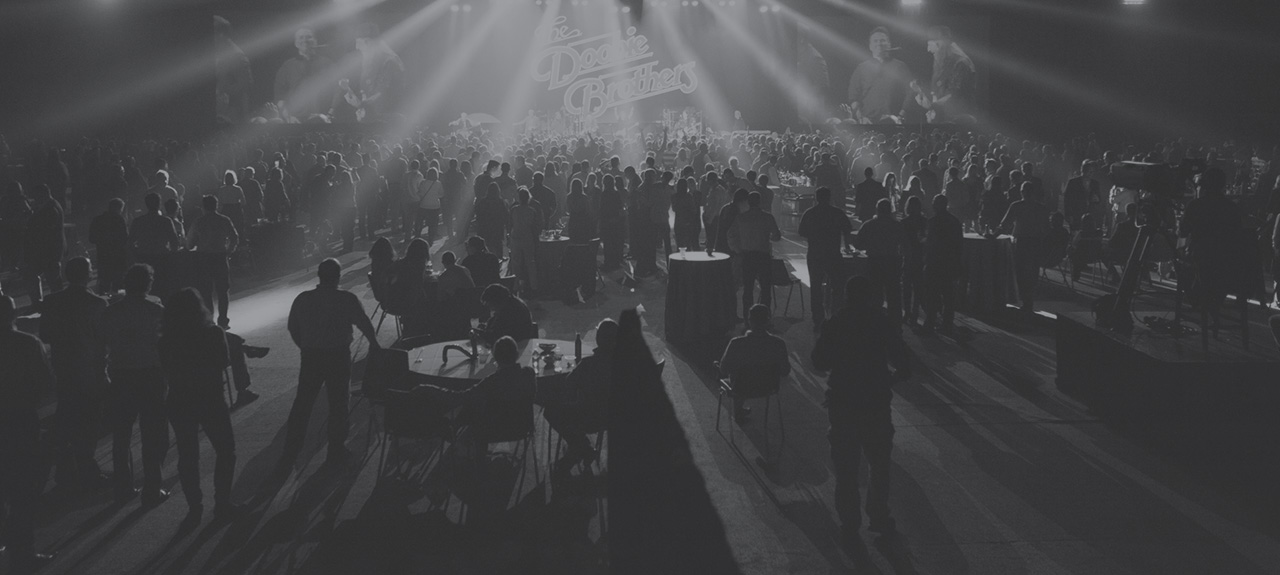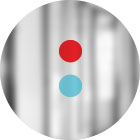Working as an administrative coordinator at Switch can have you wearing many hats. These hats (your everyday ball caps, if you will) can have you invoicing, setting up a client meeting, proofreading, calling vendors, working on tedious projects in Excel (this could only be described as a day when your ball cap is pulled just a little too tight) and basically being the go-to for multiple managers in your department to assist them in a variety of tasks. On a rare, special occasion, you could be presented with an unfamiliar hat. One that is completely out of your comfort zone and perhaps, a little showy. In my case, it can be best described as a sequin fedora. The rare, special occasion where I received my sequin fedora is when I signed on to be a Production Assistant for my first Switch show. Cue panic.

It was a no-brainer for me to accept the offer despite my fears. One, the required attire is all black so my inner Goth was screaming yaaaaaas. Two, in my position—you should take every opportunity to learn more about what our agency does. Sure, I’ve set up the Purchase Orders for this project or managed the calendar but being a part of the actual production is something else entirely. So, in my short time here, I’ve been able to trade in my ball cap for the fedora on quite a few occasions. Enough times now that the sparkly fedora is easing its way into the comfort zone. With each show comes trial-and-error … and an opportunity to learn.
It would be unfair for me not to share what I’ve learned so far – to not only document and demonstrate my growth, but to also pass along my know-how to another budding PA. So without further ado, here are 10 tips for first-time Production Assistants:
- Wear Comfortable Shoes! I cannot stress this enough. Although those new ballet flats look awesome with the new black ensemble, about a quarter way through the show –your pinky toe will be screaming to you ‘What have you done!?’ You won’t be much help to the team in shoes that slow you down. Invest in a comfortable pair – because trust me, there will be a lot of walking.
- Get Hip to Technical Stage Terms! Having zero theater background can be a small speed bump when working on a show with seasoned pros. I found myself quickly googling terms like ‘Gobos’ and ‘Spike Marks’ and panicking when trying to find where the heck Stage Right was. My advice: Don’t be afraid to ask. They’re here to help. And really, the more you know – the more helpful you become. Also, Google.
- Don’t Stand Around! There might be some lull time before a show. Whether it’s an open time between set up and rehearsal, or even a magical moment when everyone’s ahead of schedule, you might be looking for something to keep you occupied. Reach out to the producer of the show and see where you can help, even if it’s grabbing coffee for the crew!
- Get to know the Crew! I try to memorize the name of every person on set and use their name when speaking to them. Not only is it a polite notion, It’s also helpful for when you’re communicating through headset. Most of the crew is usually familiar with one another from working together on past shows – so if they’re on a first name basis, you should be, too. Nothing is scarier than the technical director asking you to look for ‘Brian’ backstage in the dark for a microphone when you have no idea who Brian is.
- Listen and Learn! Working at any Switch event, you’ll find yourself working with a crew with decades of experience. Generally speaking, it’s best to keep your ears open and your mouth shut. It’s easy to miss something important that was said over headset, but staying attentive and responding quickly will make you a much better PA and crew member.
- Stay Caffeinated! Show days are long days. Period. Load-in for a show can start in the wee hours of the morning taking you through the dark of night for Load-out. I’d like to give a personal shout out to Starbuck’s Venti Iced Chai Tea Lattes for prepping me for any tasks on show days, from taking down Step and Repeats to grabbing late night dinners for the crew. Always be ready.
- Be that Shining Light of Positivity! Do as you’re told with a smile. Keep yourself approachable and with hands out. If someone asks you something but you don’t understand what they want or need, don’t be afraid to ask. Be helpful and have a good time; working on site can be fun, so try to not let stress overwhelm you.
- Determine your Role! Make sure you know exactly what you’re there to do. Remember that not every show requires a Production Assistant, so if you’re there, it’s because there is a task that needs help accomplished. Before you even get on site, determine why you need to be there … and own it.
- Learn to Use the Headset! Headset etiquette is still something I’m trying to perfect. I’ve found myself a few times giving hand signal confirmations rather than relaying a ‘Copy’ over the headset like the big dope that I am. So, if you don’t want a giant arrow about your head with the word “NEWBIE” flashing in neon, learn to use the headset. Show productions are fast-moving, well-oiled machines, and when close to thirty people are spread out, headset communication is vital. Get a quick, 30-second tutorial by the stage director, and it’s up to you from there. Paying attention to your headset and ‘copy’-ing when you’re spoken to will earn you a gold star and your peers will never guess it’s your first day on site. I promise. (NOTE: So, there’s no gold star, but being headset savvy is an easy way to showcase you’re not worthless.)
- Learn from Your Mistakes! It isn’t the end of the world if you forget a Sharpie or spend 5 minutes on the wrong headset channel. Mistakes may happen. What’s important – and what will make you a stronger professional – is that you learn from mistakes and avoid repeating the same error.
So, that sparkly fedora may still look totally out of place with my outfit and I might not be singing along to Jackson Browne’s ‘The Load Out’ with the crew just yet – but I’m getting there. It’s eye-opening to experience your company’s capabilities firsthand and to see a show go from brainstorming to stage. My final bit of advice: try on that hat.














